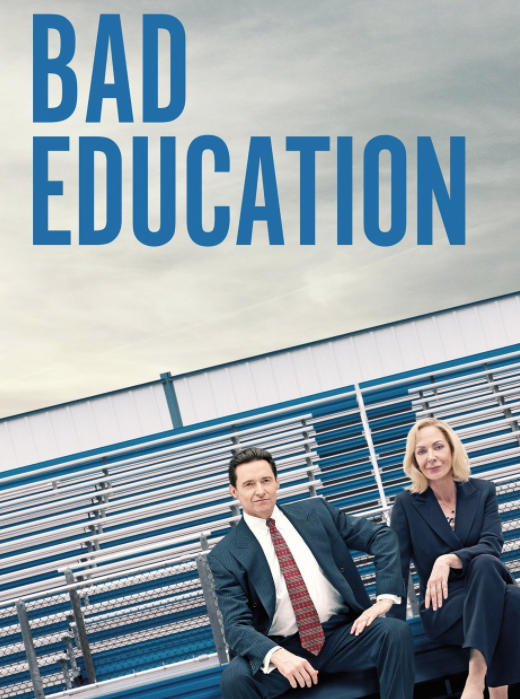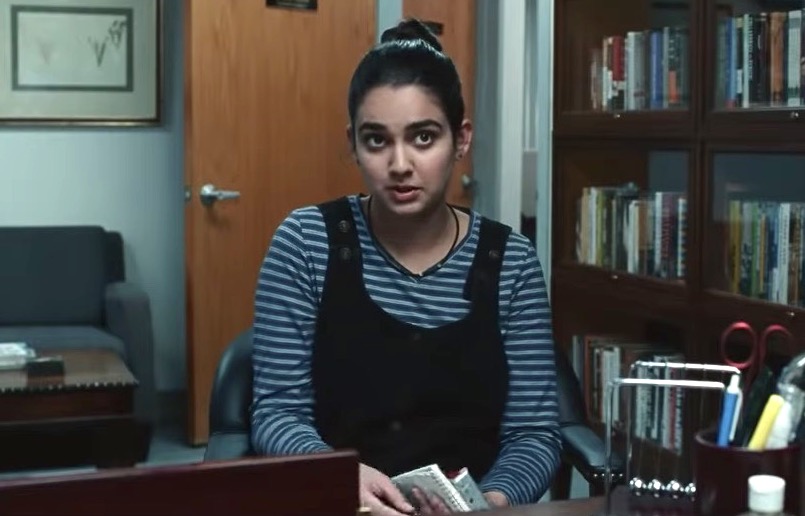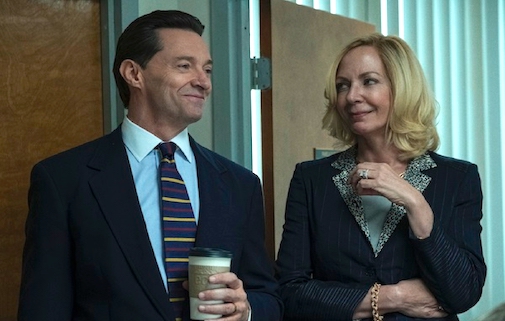 by Tony Ruggio
by Tony Ruggio
Filmmaker Cory Finley is fast becoming an auteur. That much is clear, and more, when watching his second directorial effort Bad Education, a great film unfortunately relegated to the streaming fringes of HBO. A film this good would’ve been poised to make a bigger splash with Netflix or Amazon, as well as contend for Oscars over Emmys.
Hugh Jackman gives the best performance of his career as Frank Tassone, a Long Island area school district superintendent who in the early aughts, along with district business manager Pamela Gluckin (Allison Janney) and others, embezzled millions of dollars from school funds to support their lavish lifestyles...
Finley has a knack for cultural minutiae, for exploring a particularly egregious brand of upper-class suburban entitlement. Bad Education and his wickedly funny debut feature Thoroughbreds are both about bad behavior born out of insecurity, sociopathy, boredom, and greed in the northeastern United States. Written by Mike Makowsky, a middle school student in Roselyn, NY at the time of the scandal, the film seeks to unpack the assorted pressures and personality flaws that led otherwise everyday do-gooders to resort to defrauding the very people and students they had committed their lives to serving. It’s also a low-key celebration of the power of investigative journalism, even in the hands of a small school outlet.

A sophomore and writer for the Roselyn student paper, Rachel Bhargava (Geraldine Viswanathan) is taught by folks like Tassone to strive for greater ends. So that’s exactly what she does when called to report on the school’s much-ballyhooed Skywalk construction project, a possible fluff piece that snowballs into an investigation when Pamela Gluckin arrogantly hands her the keys to the kingdom’s budget archives. Gluckin, played with condescending panache by Janney, spends most of her spoils on home improvements designed to increase her family’s property value. For six years I worked for a company that provided services to cities and school districts around the country. If there’s one thing I learned about those who call these affluent neighborhoods home, it’s that people will do and say anything to raise or retain their property values.
Through meetings with school board president Bob Spicer (an amusingly daft Ray Romano), who never misses an opportunity to lather praise for Tassone’s work, it’s clear what has prompted the surreptitious behavior: upward mobility. The town’s reputation and value was built on the quality of its schools, on good grades, high graduation hosannas, and college attendance rates. Accident and entitlement may have led Tassone, Gluckin, and co. to steal at first, but it was pride and local ego that led them to continue doing so and ultimately to cover it up.

Jackman has never been better or more alive on screen as Frank, a natural-born liar and man of many needs that go way above his pay grade. He believes he deserves more than what is owed to him, that his legal pittance isn’t enough to pay him back for years of “servitude” to the parents and their children. He and the rest are what happens when you take an understandable and often just sentiment like “educators should be paid more” and run with it till it fosters greed and bleeds American green. In one scene, a routine meeting with a single parent and her intellectually-challenged son turns ugly and revealing, not only of Tassone’s nature but also the depth of Jackman’s performance.
A monologue about race cars is the stuff of Oscar clip history, and one stirring scene in a nightclub where Frank loosens up and finally, fully embraces his true self in public ensures we never forget the insecurities nor the inhibitions that drive him. A final moment that breaks reality and provides a window into his psyche uses all of the stylistic hallmarks that set apart Thoroughbreds: tracking shots, foreboding music or sound, and compassionate storytelling. Finley’s craft and Jackman’s talent force us to reckon with the guy’s humanity, even in the face of so many bad deeds. Bad Education is not limited in scope, nor is it a film of slight importance. It’s a film for our current Fraud-ed Age. I would’ve preferred an Oscar run, but here’s hoping it’s not forgotten at the Emmys. A-
Related:
Chris Feil's TIFF Review last fall
More on Finley's debut Thoroughbreds